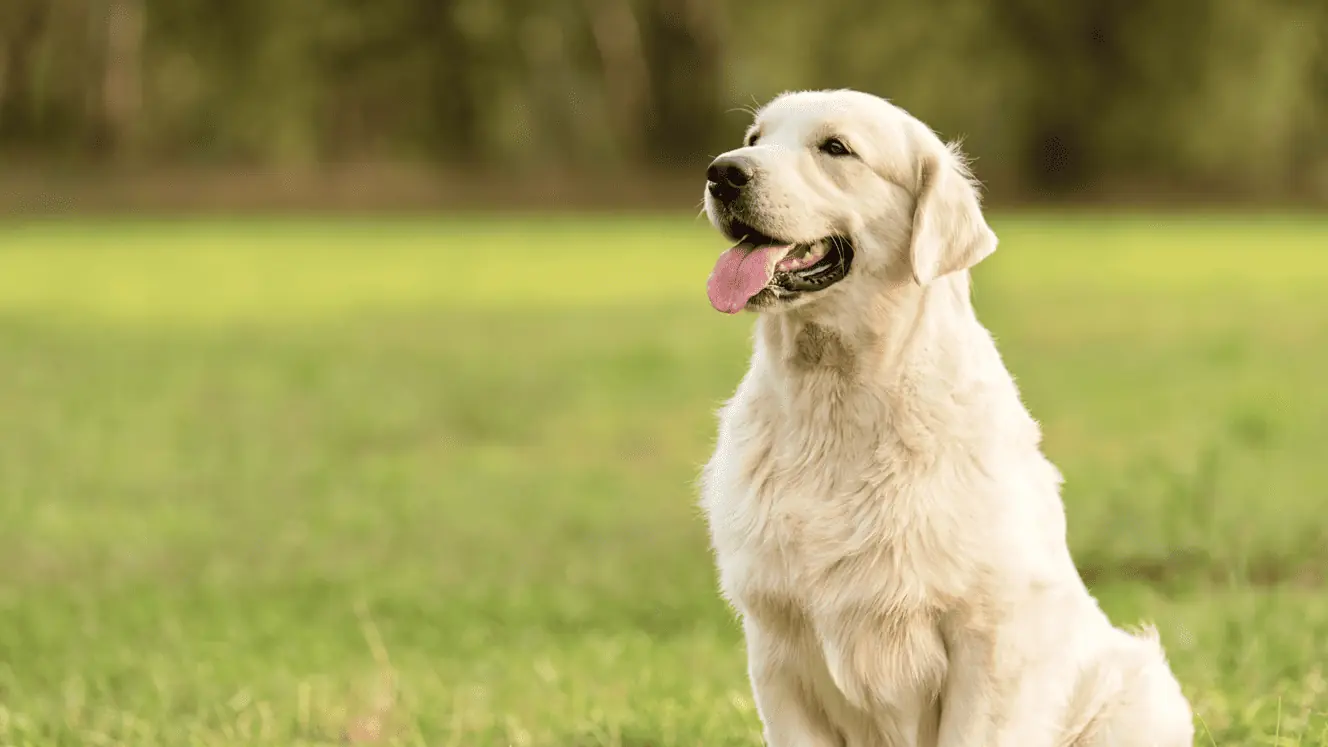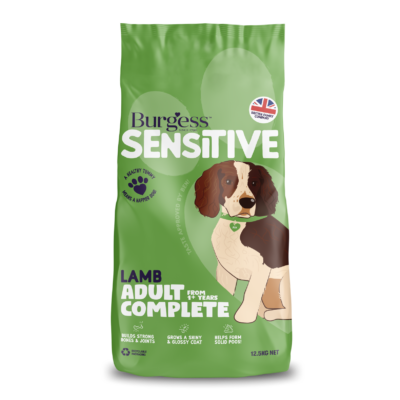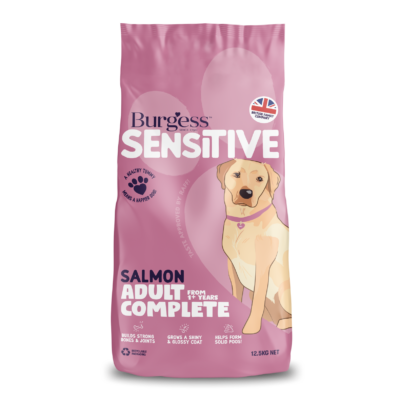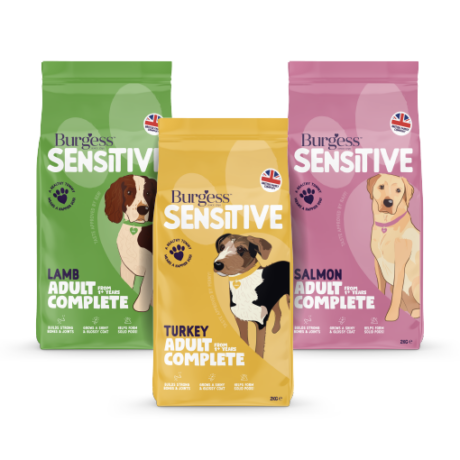
But, if you’re new to the breed, where do you start with Labrador puppy training?
The Kennel Club advises: “Training really can be the most fun and rewarding part of owning a dog. As soon as you bring your new furry friend home, training needs to be high on your list of priorities. Training is an obligation all dog owners need to conscious of, for both the welfare of their dog, as well as the community in which they live. By going to classes, you can meet the ethical and moral responsibilities of dog ownership and promote the benefits that dogs can bring to people's lives.”
Veterinary charity PDSA adds: “Training is a great way to keep your dog’s mind active. It also helps you bond and understand each other. Without training, the world can be a pretty confusing place for your dog. We all expect dogs to behave in set ways and follow certain rules. Your dog needs to understand those rules before they can stick to them. It’s easier to learn when it’s fun. The kindest and most effective method is called ‘reward-based training’ – also called ‘positive reinforcement’.”
Harness the power of positive, reward-based training
Positive, reward-based training works like this – by rewarding your dog when they do what you want them to, they’ll want to behave that way again. With regular repetition, your dog will eventually respond to a command without needing the reward – although it’s always nice to keep the positivity going by giving your best furry friend the occasional treat when they’ve been especially good.
TOP TIP
Since life is a game for these big, affable dogs, they respond well to upbeat training methods using your voice and positive reinforcement.
Source: Pet Plan
Rehoming charity Dogs Trust says: “Training your dog is an important part of being a responsible owner, because it can prevent unwanted behaviour problems developing. Through training, you can make sure your dog is rewarded for good behaviours that will enable them to lead a safe and happy life.”
TOP TIP
Labradors are highly social by nature and letting your pet run free with other dogs in a safe environment will give them a great workout, as well as mental stimulation. However, good recall training is a must to keep them safe.
Source: Pet Plan
The charity advises: “As dogs are clever animals, they need suitable mental and physical exercise so that they don't get bored. Learning useful life skills such as recall, loose lead walking and settling are just as important. This ensures that you and your dog can spend enjoyable time together, both at home and out and about. Find out what your dog loves so you can use this to reward them after a success. Whether it’s treats, toys or lots of praise, training with rewards is the best way for your dog to learn.”
Labrador Retriever training – some really useful things to know
Royvon, a long-established family business which offers reward-based training programmes focused on movement and fun, has this to say about Labrador Retrievers:
“They are an extraordinary breed with a fascinating history and a breed profile full of superlatives. This includes fabulous intelligence and trainability, adaptability, friendliness and trust towards people and other animals, motivation for work, endurance, and a phenomenal sense of smell. Adorable Labradors can make wonderful family dogs, but only if their needs are met. Unfulfilled and untrained Labradors are likely to find themselves a job or another outlet to release that energy and frustration. This can lead to destructive or inappropriate behaviours and a dog who is simply out of control.”
Royvon lists typical challenges for an untrained Labrador Retriever can include:
- Pulling on the lead and lunging towards anything that interests them.
- Boisterous and over-excited behaviour including jumping up, grabbing the lead in their mouth, crashing into people and objects, stealing food and other items.
- Running off to greet people and dogs instead of coming back when called.
With a focus on helping humans make the most of their relationship with their canine chum, Royvon adds: “Early intervention can help make sure that they don’t develop these traits and that they grow up into the loving family pets that many people think of straight away when it comes to Labradors!”
TOP TIP
Make sure your pet doesn’t overdo it when exercising, as Labradors can often get carried away – especially during their puppy years when their joints and bones are still growing.
Source: Pet Plan
Check out Royvon’s Labrador Retriever training advice:
- SOCIALISE THEM EARLY It’s important to ensure that your puppy is allowed to experience everything in a safe and rewarding way. This includes all kinds of places, people, animals and sensations that will be a normal part of their life by the time he or she is 12 weeks old. This exposure should work in line with the puppy’s natural curiosity so that they can approach and discover new things and experiences at their pace, without either getting too overwhelmed or not experiencing enough.
- SELF-CONTROL IS A BIG PART OF LABRADOR TRAINING Teaching your dog self-control is a really important skill for a Labrador to have. You can help teach them self-control through impulse control games and real-life situations. This will help with teaching them basic doggie manners such as how to politely greet people and other dogs with all four paws on the ground, how to wait for their food bowl or their lead to be clipped on, how to pass through the door politely without dashing through, and so on. It’s always good to have a dog who knows their manners from an early age, as this will make life a whole lot easier for both of you,
- LEAD ETIQUETTE IS ALWAYS NEEDED Teach your Labrador to walk politely on a lead from as early an age as possible. For a Labrador, the world is full of fascinating scents, posts and tufts of grass that must be scent-marked, especially for males, and objects that must be immediately investigated. This makes it hard for them to remember that there is a person on the other end of the lead. But with lots of practice, patience and a way of rewarding that works for them, keeping an eye on their human counterpart can become a habit for your dog that will last a lifetime.
- RECALL IS VITAL Teach your dog a reliable, fast and enthusiastic recall as soon as possible. This is so that no matter what other fascinating things are going on, they will always turn on a penny and run like the wind back towards you! Having a great recall is not only useful for your day to day lives, but it is also a safety concern. If there is a potentially dangerous situation for your pup ahead, you can always recall your dog back to you and keep them safe.
- DON’T FORGET PLAYTIME! It’s absolutely vital to play with your Labrador as much as you can. Interactive games including, fetch, tug, trick training and scent games are great for building a solid relationship that makes you the centre of your dog’s universe. Once this happens, training will become a lot easier. And, they will be that loving family pet that you’ve always dreamed of! Even better, the whole family can get involved and play with the dog. This will strengthen the bond between all of you, and who doesn’t want their dog to be bonded with the whole family?
Royvon adds: “It’s not always all about training. Their mental wellbeing and happiness is important too. So, make sure to provide plenty of exercise and mental stimulation, including walks, swims, and sniffing opportunities.”
Where’s the best place to get good training advice for your Labrador Retriever?
When it comes to training your four-legged friend, you may come across varying opinions on how to do it. Unfortunately, some of these ideas and ‘methods’ – from choke chains to dominance – are completely outdated.
The best way to get training tips and advice to help dogs feel safe and comfortable in the human world is from tried and trusted sources such as Dogs Trust, PDSA and Battersea. These charities work with all sorts of dogs and use the latest thinking and techniques so that training is a positive experience for both you and your dog.
USEFUL RESOURCES:
- Members of the Association of Pet Dog Trainers only use reward-based methods – visit their website to find a trainer in your area
- If you're looking for training classes for your dog or puppy – be sure to sniff out Dog's Trust Dog School
- You can also find lots of advice and training videos through Dogs Trust YouTube
- Visit the pet advice section of Battersea’s website for lots of tips and techniques
- Canine Principles runs several ‘Dog Skills for Humans’ courses and workshops
- Find out more about The Kennel Club’s Good Citizen Dog Training Scheme
Is a Labrador Retriever the right breed for you?
The natural activity and intelligence of the Labrador Retriever means that he or she needs to be engaged to lead a fulfilled life and will thrive on lots of positive reward-based training, plenty of exercise as well as the right nutrition to keep them happy and healthy throughout their lives. Here are The Kennel Club’s guidelines on Labrador Retrievers:
- SIZE: Large
- EXERCISE: More than 2 hours per day
- SIZE OF HOME: Large house
- GROOMING: Once a week
- COAT LENGTH: Short
- SHEDS: Yes
- LIFESPAN: Over 10 years
- TOWN OR COUNTRY: Either
- SIZE OF GARDEN: Large garden
What kind of dog should you get for your home?
TASTY, NUTRITIOUS RECIPES FOR YOUR LABRADOR RETRIEVER
Each and every dog deserves a first-class dinner.Burgess Pet Care is a British, family-owned company and all our dog foods are made in our own factory in the heart of Yorkshire. We use premium ingredients to ensure excellent quality and superior taste to help keep your dog happy and healthy – frompuppy, toadult andsenior and for active, sporting and working dogs.
We’ve also developed foods to meet the specific nutritional needs ofdogs with sensitivities. And we’re very proud of ourPaul O'Grady's 'No Nasties' dog food range.
All Burgess dog food is a complete food. This means, whatever variety you choose for your Labrador Retriever, it will contain all the nutrients they need in the correct balance.
Is your dog a Burgess dog? Join the Burgess Pet Club for exclusive offers and rewards.
If you found this interesting, you may also like:
BECOME A DOG COMMUNICATION EXPERT It’s not difficult to tell if your dog is really happy – that waggy tail and soppy smile is such a giveaway. However, there are lots of other, more subtle signs that reveal how your four-legged pal is feeling and what they’re trying to tell you.
COUNTRYSIDE CALL BACKS Being out and about in the countryside makes having a good recall even more important. Here’s what (and what not) to do...
ZOOMIES EXPLAINED Running around in circles? Mad, mid-air twists and spins? When your pet shows a flash of exuberant activity, what does it mean?
A PET BY ANY OTHER NAME Want just YOUR dog to come when you call them? When it comes to the pet naming game, choose wisely...
OPEN UP YOUR EYES TO YOUR DOG’S WORLD Are dogs colour blind? Do our canine companions really see the world in black and white? What’s a dog’s most important sense? Understanding how your four-pawed pal interprets the world through their five senses can help you provide them with the best, most enriching life.
FUN AND GAMES IN THE DOG PARK Going to the park is the highlight of many dogs’ day as it’s a chance for canine chums to enjoy a meet and greet, chase after a ball and dash about with their best buddies. However, not every dog-to-dog interaction goes to plan and there are definite rules of the game.
SCRATCH AND SNIFF When you take your dog out for a walk, do you allow them time to follow their nose and enjoy lots of sniffing activity? Find out why having a good sniff is super important to your canine pal – and how it can even help address behaviour issues and improve recall...
IS TAKING YOUR DOG FOR A WALK A TUG OF WAR? Pulling on the lead is a behaviour that many dog owners grapple with on a daily basis. But with training, patience and plenty of encouragement, every dog can learn to walk nicely on the lead.
HOW TO TEACH YOUR DOG THAT IT'S CHILL OUT TIME Are you struggling to find your dog’s off button? While some canines are natural couch potatoes, others need a little encouragement to learn to settle down and be calm. Our expert step-by-step training plan can help.
GUILTY DOGS? WHEN LOOKS CAN LIE We all know that hang-dog look – the guilty expression on your canine chum’s face when you discover they’ve ripped up a cuddly toy or torn apart the mail. Dogs know when they’ve done something naughty, right? Or have we got them all wrong?
THE DOG’S HONEST TRUTH Why all dogs are champions who change our lives for the better.
BACK SOON All dogs benefit from learning to manage being on their own for short periods. Otherwise, if you have to leave your dog and they aren’t used to it, it will be very stressful for them.
YOU’RE MY BEST FRIEND Which would you choose – a night out with your friends or night in on the sofa with your dog? If it’s the latter, then you’re not alone. More than half of pet owners admit they enjoy the company of their animals more than that of their human friends
PROTECT YOUR PET’S HEALTH DURING THE COST-OF-LIVING CRISIS There’s no doubt that this can be especially challenging during the current cost-of-living crisis. However, there’s lots you can do – and help is available for people and pets most in need.
PET INSURANCE EXPLAINED Cat insurance, dog insurance, rabbit insurance – what pets can get cover? Can you get pet insurance for pre-existing conditions? Can you get pet insurance for older pets? Can you get multi-pet cover? We answer some of the most commonly asked questions.
ARE YOU READY FOR A DOG? Taking on a dog is a huge decision. It requires money, time and commitment. Here are some of the things you’ll need to consider...

















